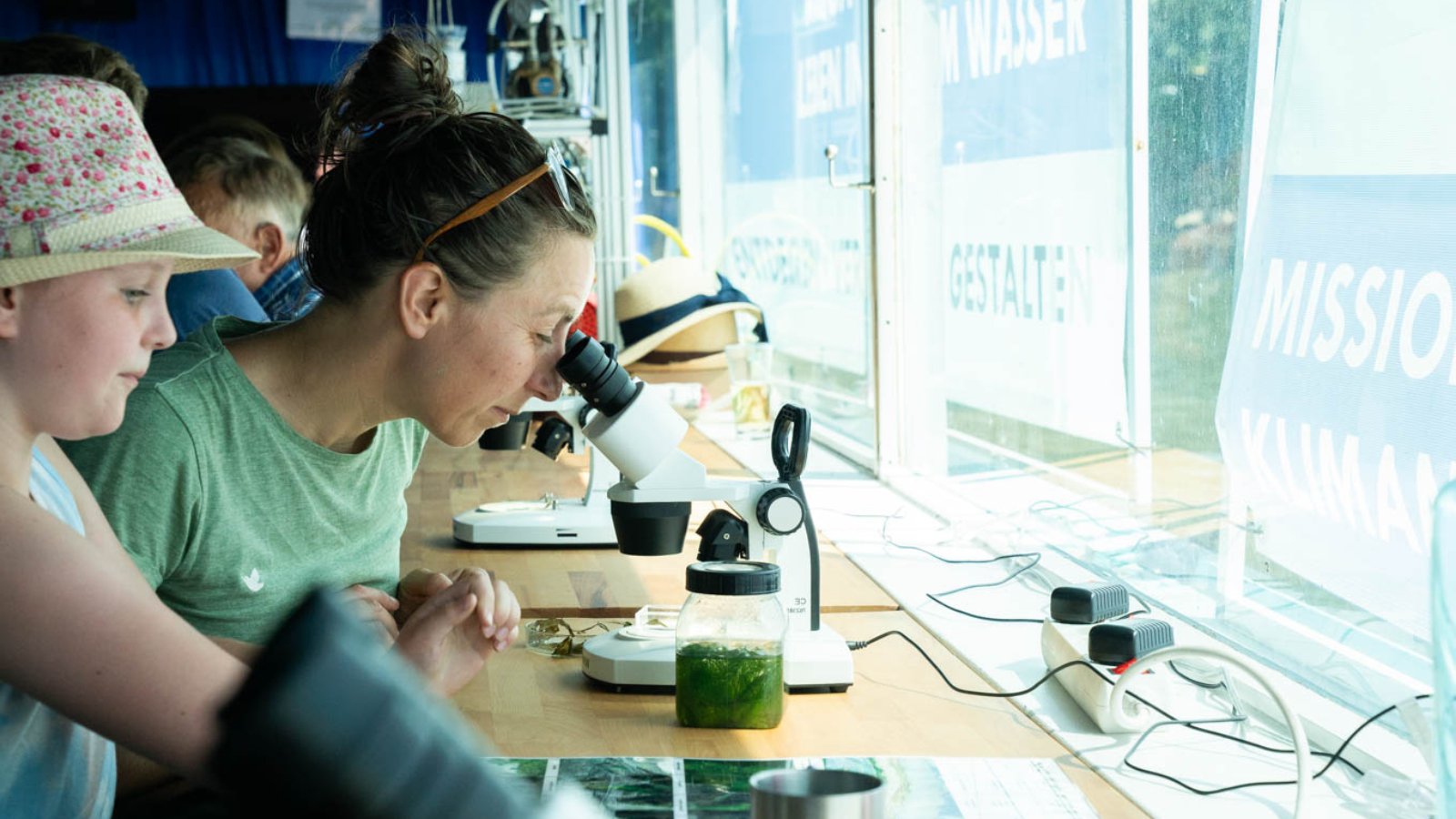The Future Needs Interconnectivity
Species extinction, climate crisis, democracies in danger: Many challenges of our time can only be solved together – globally and within societies. Therefore, this year’s international media and science festival SILBERSALZ explored different ways of how to make this possible.
“The most expensive thing we can do right now is nothing“, says Eckart von Hirschhausen while speaking on a panel in the Ulrichskirche in Halle (Saale). “If we insist on being the most intelligent species on this planet, why do we keep destroying it?”
After two years of living within a global pandemic the world slowly returns to normal. However, the challenges we have to face as a global community have become more complex during the past years. Focusing on what we have in common often feels hard in the face of war, radicalization and the climate crisis. How can interconnectivity work in a world mainly focusing on what tears it apart? How can societies and people find their ways back to each other – especially when they have been drifting apart for the last few years? And how can we find solutions for challenges that require a global effort?
Collaborating with many experts, scientists and artists this year's international media and science festival SILBERSALZ in Halle (Saale) faced such urgent questions. Its motto: “The future ahead of us. Connected by knowledge“ – an attempt to approach those huge challenges together and discuss different solutions.
A look at the panels throws a light on how heavily many of them rely on interconnectivity. Harald Lesch for example, author and professor for theoretical Astrophysics at the Ludwig-Maximilians-Universität in Munich, argued that any solutions for urgent challenges such as the energy transition require people who acknowledge the task. “If we don’t manage to work together, the energy transition will fail. This is not a few people’s problem, it is a team effort”, he says.
Katharina Liesenberg, the founder of “mehr als wählen e.V.” and „Es geht LOS“, who conducts public participation programs, has a similar kind of view. When talking about strategies for creating more inclusive societies during the panel “Inclusivity through Innovation” she says: “Bottom Up participation shows how much we depend on each other. It gives us the chance to learn from other people’s experiences and perspectives as well as to reflect ourselves.”
Reflecting, learning, experiencing: The festival chose a special way to deal with the topics of our time. Therefore, on many venues throughout the city visitors were motivated the directly engage with science: Interactive worlds such as the multimedia installation “Myriad” for example offered people the chance to virtually interact with species that in reality are close to being extinct. The virtual reality experience “Gondwana” showed people how their actions could change the ecosystem of the rainforest - science was experienced with all senses, contexts were presented in a playful way.
More on the topic
How we support science in societyThe spheres of science, politics, and society are often perceived as separate, and yet they are closely interlinked and impact one another. The international science and media festival SILBERSALZ boosts scientific discourse and brings current research to life.

